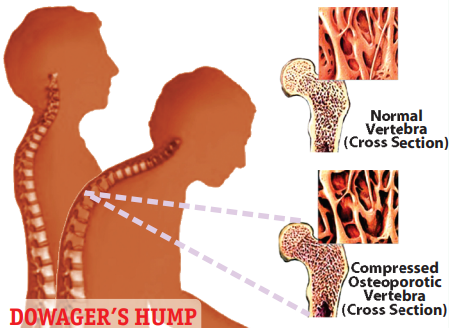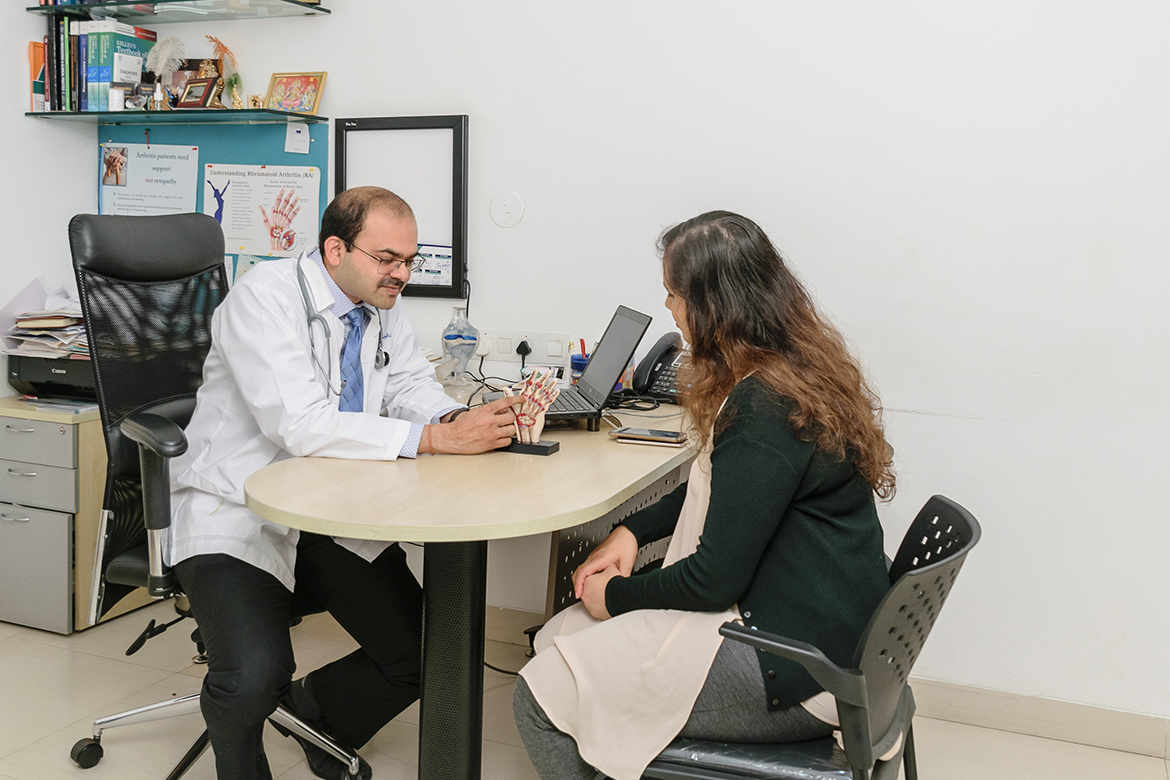Osteoporosis is a disease in which the bone mass and bone strength are reduced, making them weak and easy to break, resulting in fractures. Osteoporosis is common, affecting one in three women and one in five men over the age of fifty; however, the disease can strike at any age. If not prevented or left untreated, the loss of bone occurs ‘silently’ and progressively

Signs and Symptoms
As bone loss is gradual and painless, often there are no symptoms until the first fracture occurs. The most common fractures associated with osteoporosis occur at the hip, spine and wrist. Spinal fractures can result in serious consequences, including loss of height, intense back pain and deformity. A hip fracture often requires surgery and may result in loss of independent living. In some cases, a stooped back (Dowager’s Hump) and loss in height may be the only visible signs that a person has osteoporosis. Since the disease does not have obvious symptoms, doctors may recommend a bone mineral density test.
Risk Factors
- Gender – Women are four times more likely to develop osteoporosis than men.
- Ageing
- A family history of osteoporosis or broken bones as adults
- Having a thin, small framed body
- Lack of exercise, especially weight bearing ones, such as walking
- Long term bed rest
- Low calcium & vitamin D intake or absorption
- Smoking and/or drinking alcohol
- Long term use of some medicines like steroids
- Certain other diseases like Asthma, Thyroid Illness and Arthritis
Osteoporosis Clinic
The Osteoporosis Clinic at Kokilaben Hospital aims to prevent and treat osteoporosis through education, nutrition, physical therapy and medication. The primary goal is to prevent fractures by stopping or slowing bone loss, maintaining bone strength and eliminating factors that contribute to falls.
Services Offered
Each new patient will meet a dietician, physiotherapist, nurse clinician and a consultant.
The visit will include:
- Detailed history and clinical examination by a consultant specialising in osteoporosis
- Assessment of risk factors for osteoporosis by a simple questionnaire
- Bone Density Testing by DEXA scan – an X-ray like machine which measures your bone mass in a simple, painless manner in 20 minutes.
- Basic Blood Tests: CBC, ESR, SGPT, Creatinine, Total Protein, Calcium, Phosphorus, Alkaline phosphatase, Vitamin D3, TSH & PTH
- X-ray of Dorsolumbar Spine – Lateral view (if the bone density is low)
At the end of assessment, the patient will be given a comprehensive review of the bone health status, which includes lifestyle and diet modification, exercises for improving bone strength and fall prevention strategies, and medications as required. If any further investigation/intervention is required for cases with severe osteoporosis, it will be managed by our experienced team using the most advanced technology.
 Back to Site
Back to Site